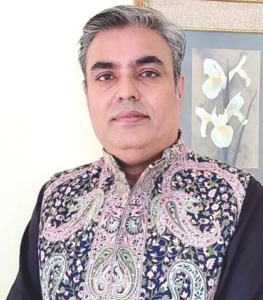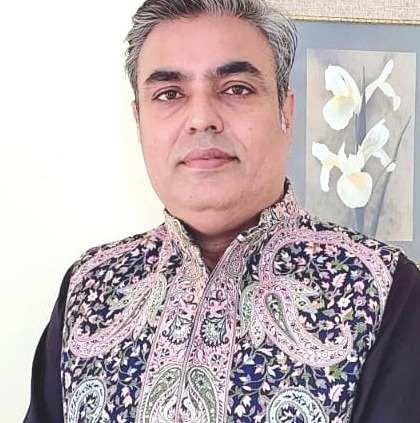A Valley in Smoke: How Tobacco is Quietly Devastating Kashmir’s Families
By Shariq Maqbool

In the heart of Kashmir, beneath the silence of its snow-capped peaks and the rhythm of its daily life, an invisible crisis is unfolding. While political tensions and climate concerns often make headlines, one slow-burning emergency rarely receives the attention it deserves: the growing addiction to tobacco, and the devastation it leaves in its wake.
Cigarette smoking has become a common sight in the Valley. It is present at tea stalls, outside colleges, on shopfronts, and even inside homes. To many, it feels like a normal part of life. But behind this social acceptance lies a trail of worsening health, financial collapse, and quiet grief.
Recent research conducted by the Policy and Research Institute shows that more than half of adult men in Kashmir smoke regularly. Among the youth, one in five has already experimented with smoking, many starting as early as their mid-teens. In interviews, young men often mention stress, boredom, and peer pressure as reasons for picking up the habit. One 18-year-old from Pulwama said, “Everyone in my mohalla smokes. You grow up seeing it, so you follow.”
But what seems like a personal choice soon becomes a public health burden. Hospitals in Srinagar, Baramulla, and Anantnag are reporting a steady rise in cases of lung cancer, chronic bronchitis, and heart disease linked directly to tobacco use. Many patients, doctors say, arrive at advanced stages when treatment options are limited and survival chances are low. Secondhand smoke is also impacting those who don’t smoke—children, elderly parents, and women sharing confined living spaces.
The problem doesn’t end at illness. Smoking is also draining household incomes across the Valley. A typical smoker spends ₹250 to ₹300 a day—roughly ₹9,000 a month. For families earning between ₹15,000 to ₹25,000 a month, this habit eats away at almost half their income. The long-term effects are even more damaging. Tobacco-related health problems often lead to medical debt, forcing families to borrow money or sell assets to pay hospital bills. One young woman from Sopore said her family sold their land to cover her father’s cancer treatment. “We lost everything,” she said. “And we still lost him.”
The reasons for smoking go beyond addiction. In a region marked by years of unrest, emotional strain, and social uncertainty, tobacco often becomes a coping mechanism. Many smokers say it helps them manage anxiety and pass the time. “It feels like control when everything else in life is unstable,” said a 28-year-old man from Anantnag. But studies consistently show that smoking actually worsens anxiety and disrupts sleep, making mental health even more fragile over time.
It is clear that this crisis cannot be solved through individual effort alone. What’s needed is a coordinated, compassionate public health response—one that addresses the emotional, social, and economic roots of tobacco addiction. Experts from the Policy and Research Institute have recommended several steps, including launching large-scale public awareness campaigns in Kashmiri and Urdu that speak directly to people’s lived realities. Personal stories from survivors, or from families who’ve suffered losses, can be far more powerful than facts alone.
The Institute also recommends offering free tobacco cessation programs in primary health centres, training frontline health workers to support people who want to quit, and restricting the sale of cigarettes—especially loose ones, which are cheap and widely available. They’ve also stressed the importance of targeting young people with education, mentorship, and alternative outlets like sports, arts, and skill training programs.
This is not about blame. It’s about protection. It’s about giving families a fighting chance—about preventing needless suffering. And above all, it’s about acknowledging that smoking in Kashmir is not just a personal vice; it is a social emergency. Left unaddressed, it will continue to claim lives, drain wallets, and rob young people of their full potential.
Tobacco smoke may be invisible, but its impact is not. We see it in hospital beds, in grieving households, in struggling students, and in dreams that end too soon. It is time to clear the air. Kashmir deserves the chance to breathe again.
Shariq Maqbool is Chief Spokesperson and Executive Member at the Policy and Research Institute. Chief Advisor Daily Asian Mail ,He writes on public health, social policy, and youth well-being in Kashmir.
Contact: [email protected]



Leave a Reply
Want to join the discussion?Feel free to contribute!